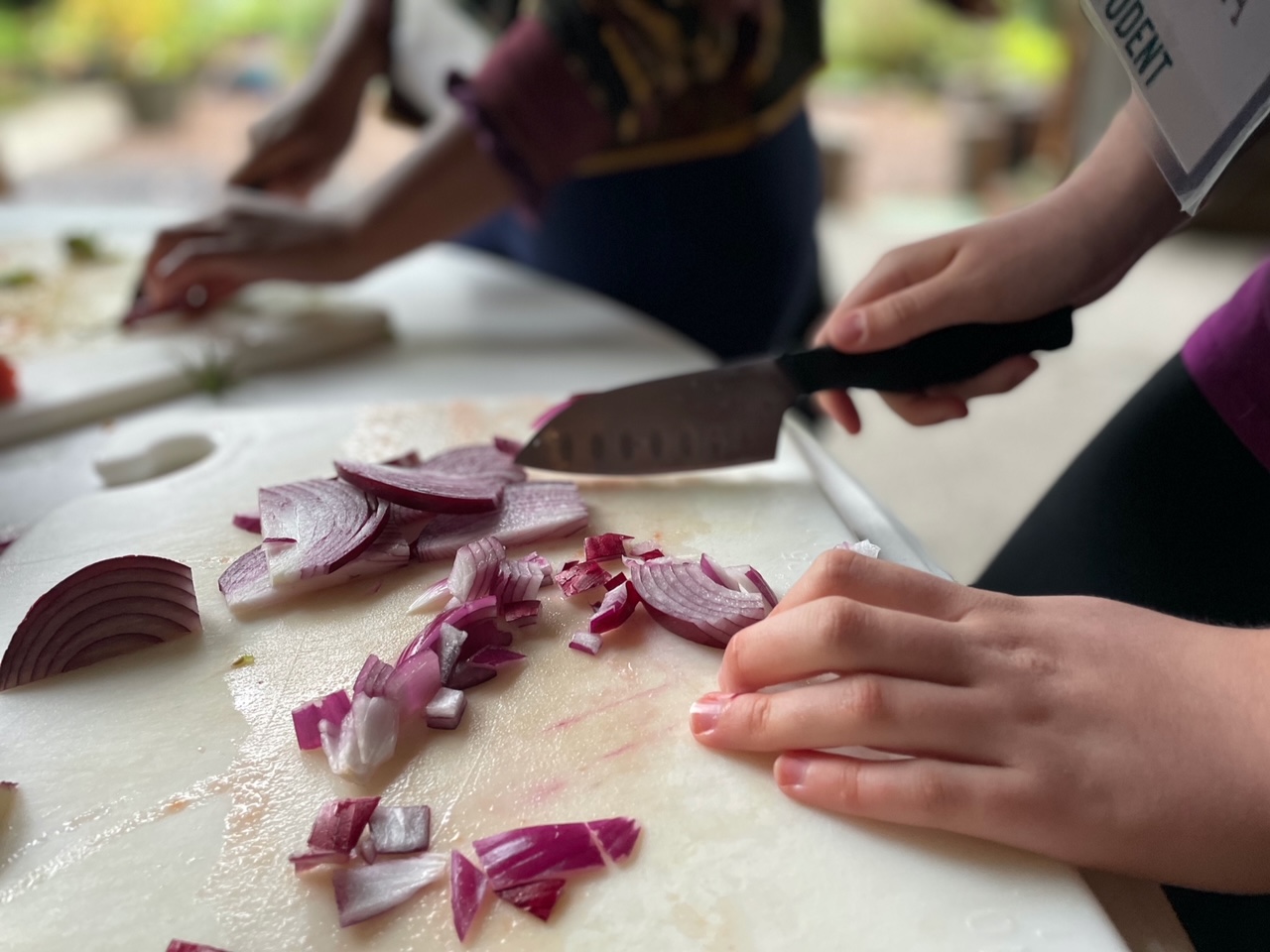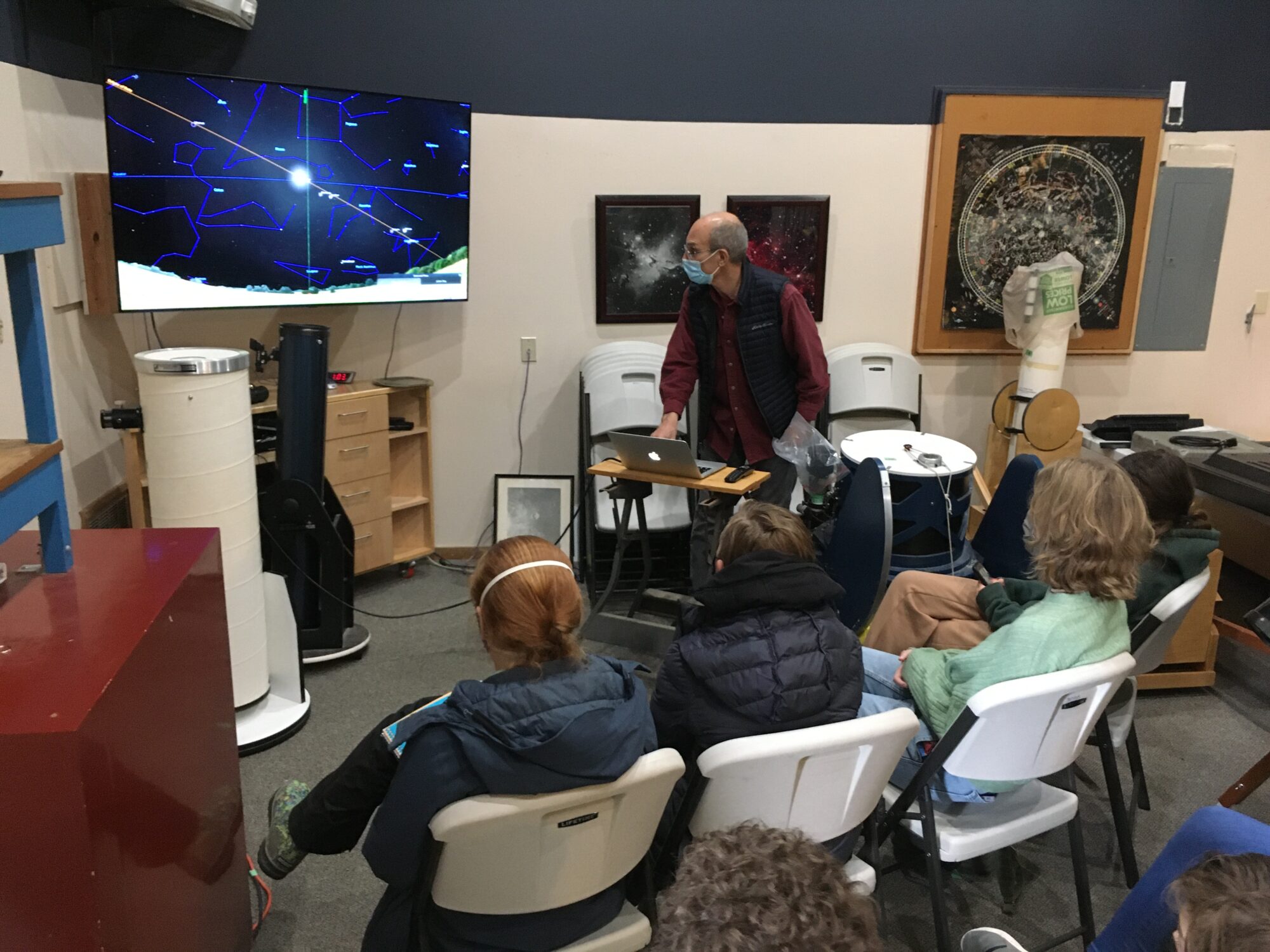Hyla Stories
Flip the Script: when students step forward




STUDENT LEADERSHIP & IDENTITY IN HIGH SCHOOL CLUBS
At first glance, you see that high school clubs are about astronomy, a literary magazine, hiking, gardening, cinema, and Disc Golf & Ultimate. Go a layer deeper and you see that students are conducting interviews and managing production deadlines; calling local nonprofits to propose a partnership based in citizen science; building cardio strength and endurance in fresh air; and debating procedures and methods for Cinema Club. Ask Spanish Teacher Tom Neal and he’ll tell you to go a layer deeper to get at the real purpose of Hyla’s high school clubs: inversion.
What happens when teachers step back:
“At Hyla our clubs are entirely student-led and student driven,” Tom explains. Students first identified what topics they wanted to form a club around, and now students are also responsible for how that happens. “We don’t come to students with topics, goals, and a prescribed framework. I believe the function of clubs is to turn the tables on traditional structures and let students step into the leadership role.” Tom explains that this flip, this role reversal, is where all the important student work happens. “In a space that isn’t already structured, you see typically vocal leaders transform into quiet listeners; you see quiet students find a voice and express themselves in new ways. Things get turned around and upside down.” Tom shares that if you watched the Garden Club making salsa and pico de gallo from local harvest, you would “see students bringing personal stories about their own lives and experiences, stories about home gardens, family knowledge, and work experiences in the food industry. You’ll see a student step forward to teach peers how to use a knife in a particular way – a skill based in family ethnicity and cultural heritage.” As a student-led space, clubs invite different ways for students to engage and participate; they also invite new relevance and possibilities for personal identities, allowing students more ways to integrate their experiences with their own personal growth.
Integration as a skill and habit:
As Suzanne explains, a deeper level of integration is precisely the value of student-led clubs. “In high school students must not only master specific skills, they must integrate those skills in dynamic ways for different purposes to achieve diverse outcomes.” Suzanne went on to say that “when we carve out time every week for clubs, we are designating time and space where students can lead by practicing this integration through application so that far beyond just talking, they are actually doing.” So what does this integration look like inside a Hyla club?
- In Hiking Club students created a peer-created resource library to share knowledge about plant identification, trails, and trees.
- In Garden Club students work alongside IslandWood’s garden manager Megan Gordinier (a local expert whose global and sustainable approach to the IslandWood garden is informed by her background in sociology, global development, and agricultural work in Central and South America) so that they can fold her expertise into their long-term plan to create a sustainable garden at Hyla High’s permanent campus on Ericksen Avenue.
- In Literary Magazine Club, students manage their individual assignments (articles, graphic design and layout, and photography) mindful of their individual contribution to the whole collaboration and the integrity of the final publication.
Students need different clubs for different reasons: some seek a way to burn off energy, others seek a way to go deeper into an area of interest, others want a chance to explore something totally new to them. Once they choose the right place for themselves, they get to further choose how they will contribute to and co-create that space that is truly student-centered, skill-based, and application-focused. “In that space, personalized leadership is the only form of leadership possible,” explains Suzanne, “because participation itself is defined by student choice and passion.”
